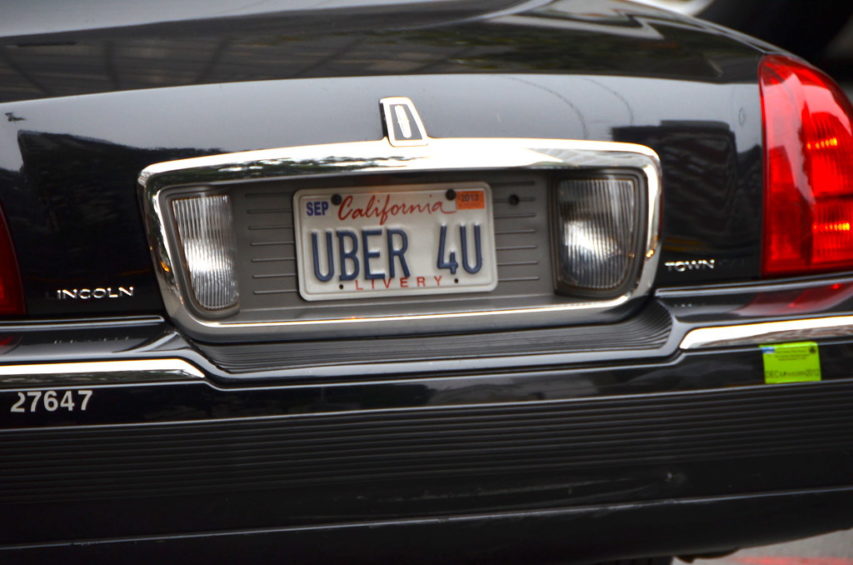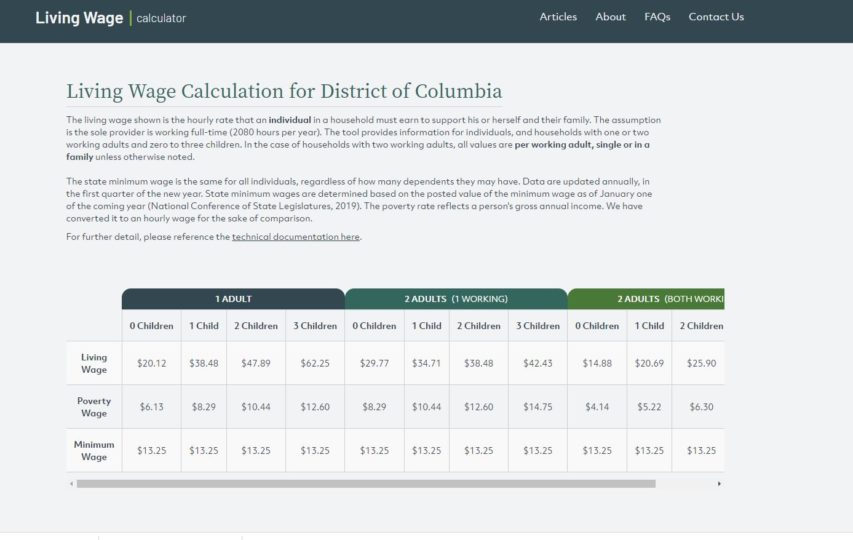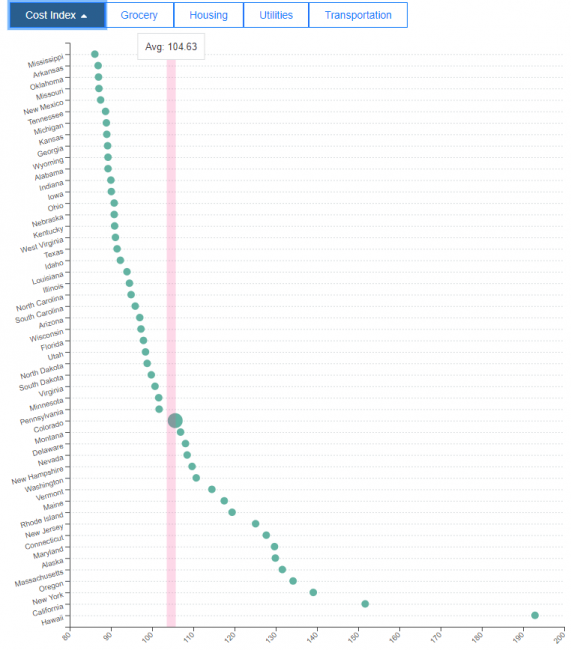So, umm, why does a worker for the state need a countervailing power to protect her from the state?
Sure, we can understand this if she’s working for the bastard capitalists. They merely want to maximise their profit and screw the workers while doing so – as we all know. But government is omniscient, omnipresent and omnibenevolent. It cannot be true that someone working for government is in need of protection from government. Because all those fine folks that make up government simply could not allow it to be that state workers don’t gain adequate wages.
Seriously, come on, this is the Progressive insistence. That getting government to do things saves us from the ravages we endure if the capitalists do them.
But now survey the actual American workplace. Unions in the private sector pretty much don’t exist any more. It is the government workforces that are unionised, making up the vast majority of union members in the country. From that pattern of union existence we have to conclude that government screws the workers rather more than the capitalists do. Otherwise why would people desire let alone need the protection of unions when working for government?
Tim Worstall, “The Public Union Proof That The Progressive State Doesn’t Work”, Expunct, 2021-05-11.
August 21, 2021
QotD: Why do government workers need unions?
August 10, 2021
QotD: Government workplace regulations still envision the unionized 1930s factory as “normal”
Regulation can be sortof kindof tolerable in stable, predictable, and unchanging markets. But what markets act like that? In the labor regulation world, for example, regulatory authorities are doing everything they can to kill a wave of innovation in labor markets. As I tell everyone I discuss this with — regulators picture workers as punching a time clock in a Pittsburg mill with their supervisor right there and present every moment, with an on-site HR department, and a cafeteria with huge walls for posting acres of labor posters. Try to have any other relationship with your employees, and it will be like pounding a round peg into a square regulatory hole. Even something as staggeringly beneficial to worker agency like letting remote workers schedule themselves tends to run afoul of the shift scheduling laws that are sweeping through progressive jurisdictions.
Warren Meyer, “When Regulation Hammers Those It is Supposed to Benefit — A Real Example in California”, Coyote Blog, 2021-05-06.
July 19, 2021
Talk is cheap, as a pizza chain CEO demonstrates brilliantly
John Miltimore examines the claims of the CEO of the &pizza chain in the Washington DC area that his stores have no problem getting staff because he pays them a “living wage”:
As far as PR goes, Lastoria gets an A+. He was profiled by Business Insider, CBS News, and other media outlets. His economics grade, however, is another story.
First, the notion that &pizza’s wages are uniquely generous is wrong. The minimum wage in the nation’s capital, after all, is $15.20. Considering that Washington, DC has one of the highest costs of living in the US, it’s not unreasonable to assume that &pizza is paying workers what amounts to the market wage of their labor (i.e. the price they’d get in the absence of a wage floor). This is a stark contrast to other parts of the United States. Fifteen dollars in DC translates to roughly $24 in Florida, $25 in Alabama and Tennessee, $26 in New Mexico, and $27 in Louisiana.
Second, Lastoria decries the alleged “shortage of business owners willing to pay a living wage.” But it should be pointed out that &pizza is one of those businesses.
While there is no objective standard to determine what a living wage actually is, MIT has a Living Wage Calculator that allows readers to compute living wages based on the formula created by Dr. Amy K. Glasmeier.
To say that &pizza doesn’t pay its employees a “living wage” is an understatement. The living wage for a single mom with one child is $38.48 in Washington DC. For a single mother with two children, it’s $47.89. Indeed, even for a married couple with just one child, the living wage is $20.69 — nearly $5 an hour more than the average pay of Lastoria’s workers. (It’s unclear why Lastoria is having fewer problems hiring workers than other businesses, but it’s most likely attributable to local factors, such as the fact that he’s servicing nine of the twenty wealthiest counties in America.)
Finally, Lastoria’s claim that higher wages increase productivity enough to improve a company’s bottom line — the efficiency wage hypothesis — has problems logically and empirically. First, it implies that companies not currently paying an efficiency wage are willing to take less profit simply to make workers poorer. Moreover, efficiency wages have been shown to reduce employment, similar to minimum wage laws.
Lastoria might see the $16 an hour average wage as exceedingly generous — especially when he compares it to lower nominal wages paid in other parts of the country — but it’s a far cry from a “living wage”, according to the model used by living wage advocates.
I asked Lastoria how he’d respond to those who say restaurants like his should be required to pay each worker a living wage. He didn’t respond.
May 28, 2021
QotD: Declaring war on college
As it currently exists, college is a scheme for laundering and perpetuating class advantage. You need to make the case that bogus degree requirements (eg someone without a college degree can’t be a sales manager at X big company, but somebody with any degree, even Art History or Literature, can) are blatantly classist. Your stretch goal should be to ban discrimination based on college degree status. Professions may continue to accept professional school degrees (eg hospitals can continue to require doctors have a medical school degree), and any company may test their employees’ knowledge (eg mining companies can make their geologists pass a geology test) but the thing where you have to get into a good college, give them $100,000, flatter your professors a bit, and end up with a History degree before you can be a firefighter or whatever is illegal. If you can’t actually make degree discrimination illegal, just make all government offices and companies that do business with the government ban degree discrimination.
Stop the thing where high schools refuse to let people graduate until they promise to go to college. End draft deferment for people who go to college — hopefully there won’t be a draft, but do it anyway, as a sign that studying at college isn’t any more important than the many other jobs people do that don’t confer draft exemptions. Make universities no longer tax-exempt — why should institutions serving primarily rich people, providing them with regattas and musical theater, and raking in billions of dollars a year, not have to pay taxes? Make the bill that does this very clearly earmark the extra tax money for things that help working-class people, like infrastructure or vocational schools or whatever.
Scott Alexander, “A Modest Proposal For Republicans: Use The Word ‘Class'”, Astral Codex Ten, 2021-02-26.
April 23, 2021
QotD: Why the British despise the middle class
… any observer of that British class system will know that it is indeed a little different from that in other places.
The aristocracy have always looked down upon the middle class. That gross and inelegant disdain for trade for example. The insistence that actually doing something for a living – even professionally – just isn’t as good as doing nothing off a rent roll.
From the other end we’ve that very bolshie – in the colloquial sense – insistence that the middle class are just parasites upon the toil of the workers. This being what also informs – misinforms – that idea that we’d be better off if we had much more manufacturing. Men in flat caps doing something physical etc.
That is, much of the society dislikes the very existence of the middle class. Actually, more than dislikes, from above they’re – we’re – despised and from below hated to the point that we bourgeoisie should be eliminated as a class.
The surprise that fewer claim to be of that section of the hierarchy than are is thus, well, it’s a surprise, right?
Tim Worstall, “Sociologist Can’t Do Sociology”, Continental Telegraph, 2021-01-19.
April 17, 2021
Considering the costs and benefits of extreme specialization
In the latest post on Matt Gurney’s Code 47 Substack blog, he considers the trade-off between population density and the range of specialization that can be supported at various densities:

“Model A Ford in front of Gilmore’s historic Shell gas station” by Corvair Owner is licensed under CC BY-SA 2.0
I wish I remembered where I read this. It was a book I was blowing through for a university paper; only one chapter was really of interest to me when I was trawling for footnotes but I stumbled upon an interesting section that talked about services and specialization in a modern economy. The author offered a simple explanation of service specialization that I’ve never forgotten. Imagine a village with 100 people, the author said. Now imagine what services are available there. There’s probably a gas station, and maybe you can get a few services done to your car there, too. Basic repairs. Tire rotations. Oil changes. Things like that. There’s probably also a convenience store, and the store might also have a place to send or receive mail, or maybe even to rent a movie. (Back when that was a thing we did.) You might have a coffee shop of some kind, maybe a diner. But that’s marginal. You almost certainly don’t have a school, full post office, bank branch or medical centre of any kind. Not in a village of 100 people.
When you itemize out all the services you can get, it’s probably about five or maybe 10 — gas pumped, tires changed, oil changed, basic engine repairs, store clerk, movie rental, mail sent and received. Maybe someone to pour you a cup of coffee and get you a sandwich — but only maybe. The point isn’t to be precise in our list or count, but just to contemplate the relationship between the population and the number and type of available services.
Now scale that village up 10 fold, the author said. Now it’s a town of 1,000. The number of services explodes. You still have everything you did before. But now you’ve also got specialized shops, restaurants, a bank or two (and all the services they provide), probably a house of worship, medical services of various kinds (including eye care, dentistry, etc), personal-care services, better access to home and lawn care, various repair and maintenance service, technical services, a post office … the list goes on. You also start to see competition and the efficiency that brings — our village of 100 would have a gas station and a convenience store (quite possibly at the same location!). But our town of 1,000 would have a few of each. You’d get more services, and start to see prices dropping for the commonly available offerings.
You get the idea — the more you scale up a population, the more specialized services that are available and the more accessible they become. And this includes not just categories of service, but also increasing degrees of specialization. Our village of 100 probably has no full-time doctor. Our town of 1,000 probably has a family physician. But after we bump things up to 10,000, 100,000 and then a million people, we’re getting not just doctors, but highly trained, specialized physicians, surgeons and diagnosticians. Our town of 1,000 has a dentist, but our city of a million has dental surgeons who’ve specialized in repairing specific kinds of trauma and injury.
Anyway. I don’t remember what book this was from. But I do remember this short section. I think about it a lot. We Canadians of 2021 are, for the most part, hyper-specialized. I’ve written columns about this before, including this one from 2019, which I’m going to quote liberally below:
Human history is, in one simplified viewing, the story of specialization. As our technology advanced, a smaller and smaller share of the labour pool was required just to keep everyone alive. Perhaps the easiest way to summarize this is to note that 150 years ago, even in the most advanced industrial countries, something close to 50 per cent of the population was directly engaged in agriculture — half the people tilled fields so the other half could eat. Today, in both Canada and the United States, it’s closer to two per cent — one person’s efforts feed 49 others. Those 49 can pursue any of the thousands of specialized jobs that allow our technological civilization to exist. … Those 49 people are our artists and doctors and scientists and teachers. Human advancement depends on this — a civilization that’s scrambling to feed itself doesn’t build particle colliders or invent new neonatal surgeries and cancer-stopping wonderdrugs.
I stand by those remarks. But I’ve been pondering them of late with a different perspective. I’ve spent much of this week talking with doctors and medical experts in Ontario, where the third wave of COVID-19 is threatening to overwhelm the health-care system, with tragic results. And one recurring theme that comes up in these conversations is how this disaster is going to take place almost entirely out of public view. There won’t be any general mobilizations or widespread damage. People are going to die, behind closed doors or tent flaps, and other people will be forever scarred by their inability to save those people. But for most of us — those who aren’t sick, or highly specialized medical professionals — life is going to be something reasonably close to normal.
March 15, 2021
Target is careful to only cite economic reasons for abandoning their downtown Minneapolis headquarters
Jon Miltimore explains why the Target corporate headquarters in Minneapolis will be given up — for reasons that go beyond the claimed success of the telecommuting encouraged by the 2020 pandemic lockdowns:

A building burning in Minneapolis following the death of George Floyd.
Photo by Hungryogrephotos via Wikipedia.
Target Corporation, the eighth largest retailer in the United States, announced in an email to employees on Thursday that it will be leaving the City Center, its primary downtown Minneapolis location.
Company officials cited improved remote work opportunities and less need for space as the drivers for the decision.
“In just one year we’ve proven that we can drive incredible results, together, from our kitchens and basements and living rooms,” said Melissa Kremer, executive vice president and leader of Target’s human resources operations.
Target, the largest employer in Minneapolis with some 8,500 corporate workers, says the 3,500 employees who work at the City Center will still have a “home base,” but it will be at another Minneapolis location or in the nearby suburb of Brooklyn Park.
A Story of Capital Flight?
On one hand, there is little reason to doubt Target’s explanation for abandoning its headquarters. Many anticipated that the pandemic would lead to a normalization of remote work.
“The future of work will be distributed,” Erica Brescia, the chief operating officer of Github, told the BBC last fall. “We’re going to see a big shift from office by default to remote by default.”
Part of that shift, it’s reasonable to assume, would be corporations moving away from high-end corporate real estate. Yet it also shouldn’t be forgotten (or ignored) that Target’s decision comes less than a year after Minneapolis suffered some of the worst riots in US history, prompted by the May 25 death of George Floyd.
The riots — which broke out after a video went viral showing police pinning Floyd, a 46-year-old black man, to the ground for nearly nine minutes before he died — caused an estimated $2 billion in damage.
Though Target made no mention of the riots in its announcement, last summer I noted that an abundance of evidence suggested that the economic damage of the riots would persist long after the wreckage had cleared.
March 8, 2021
Despite the rhetoric, judging by their actions the Democrats really hate the “gig economy”
Along with all the giveaways to favoured groups in the US government’s huge “relief” bill, there was a late change that will take the gig economy into a back alley and rough it up to the tune of about $1 billion in new taxes:

UBER 4U by afagen is licensed under CC BY-NC-SA 2.0
When the economy is struggling to recover from a pandemic and crushing government lockdowns, that’s probably the worst time to impose $1 billion in new annual taxes on the working class. But that’s exactly what a new provision quietly slipped into the Democrats’ sweeping $1.9 trillion COVID legislation would do.
“A last-minute insert by Democrats looking to offset the cost of their coronavirus aid package would send tax collectors into the gig economy, eventually costing Uber and DoorDash drivers, Airbnb hosts and others about $1 billion annually,” Roll Call reports.
Under current tax law, earnings data for gig economy workers only needs to be reported to the IRS once it reaches $20,000. This means that small earners pursuing gig work to supplement their income aren’t hit by crushing federal taxes. However, the Democrats’ provision would nearly eliminate this benchmark, and instead require all income above $600 to be reported to the IRS.
“The stiffer tax burden would be imposed while 10 million Americans are unemployed and more and more have turned to freelance and gig economy work to make ends meet,” Roll Call notes.
Indeed it would, and this would be disastrous for both workers and the economy.
This tax hike “adds a significant burden to gig economy and small business workers at the worst possible time,” according to TechNet spokesman Steve Kidera. One tax expert warned Roll Call that many struggling gig economy workers won’t be able to pay the higher taxes, and that IRS penalties “can destroy a person’s life.”
February 19, 2021
QotD: The disillusionment of working in a bookshop
For the better part of 2006, while studying for a master’s degree, I worked part-time in a branch of Waterstone’s, in *REDACTED*, the county capital of *REDACTED*.
I got the interview by stating openly in my covering letter that I was 24, still living with my mum, and asking her for train-fare had become a bit undignified. This seemed encouraging. But then the panel (2 pax.) asked what I was reading currently, and I said Sam Harris’s The End of Faith, and there was awkward silence. This set the tone for almost every “literary” chat thereafter.
Call me an idiot, but I was genuinely stunned to find we weren’t allowed to read on the job. Instead, booksellers had to devote any time not spent actually dealing with customers (which on a rainy weekend, in the wrong bit of the shop, could be a lot) with often-fruitless searches for books which had been lost, mis-shelved, or maybe stolen, or because they had to be returned to publishers (another surprise), and at the publisher’s expense.
I also quickly realised that the layout of the shop was not an accident (even in the jury-rigged “commercial” buildings of many an English town centre), and that the unadvertised steering of a customer around a bookshop was near-identical to how the algorithms work in the online equivalents (or vice versa, probably). If you like Poetry, you’re more likely to also like Philosophy, (right here on the next set of shelves), or Music (by the window), or History books (just across the room there), than if you came in looking for the latest Jeffrey Archer novel (downstairs, on the pile-’em-high islands).
Most of the time, I was just moving “stock” about, taking maddening credit card orders over the phone, or walking people literally to alphabetised mass-market fiction. All of which required no interest in, let alone knowledge of, literature. To a middle-class nerd such as myself, discovering that working in a bookshop [cue poetic images of James Frain, or similar] was fundamentally no different from working in a Sports Direct or Tesco was about the most depressing thing imaginable. That, and waiting for the Sunday trains in winter.
A.S.H. Smyth, “Seven kinds of people you find in bookshops”, The Critic, 2020-11-14.
February 5, 2021
QotD: Misunderstanding the threat/promise of robotics and AI
So, start with the very basics. Human desires and needs are unlimited – that’s an assumption but a reasonable one. There’re some number of people on the planet. This provides us with a lot of human labour but not an unlimited amount. Thus labour is a scarce or economic resource – and we’ve not enough of it to sate all human desires and wants.
OK, so, now we use machines to do some jobs that were previously done by humans. Imagine that this new technology actually required more human labour – that it created new jobs in greater volume than those it destroys. Say, the tractor and combine harvester industry needs more people in it than we used to use to cut the crops by hand. We’ve just made ourselves poorer. We used to have some amount of grain through the labour of some number of people. We’ve now got that grain but by using the labour of more people. We’ve used more of our scarce resource and we’re now poorer by the loss of what they used to make when not hand cutting grain but now no longer are by making tractors.
What makes us richer is if the tractor industry has record production statistics while using less labour than the hammer and sickle. That means that some human labour is now free to go off and try to sate a human desire or want for something other than grain. Ballet dancing for example. We’re now richer – tractors and combine harvesters have made us richer – by whatever value we put on more ballet dancing.
The entire point of any form of automation is to destroy jobs so as to free up that labour to do something else. The new technology doesn’t create jobs, it allows other jobs to be done.
The only point at which this fails is if human needs and desires aren’t unlimited. Which means that we might be able to provide everything that everyone wants without us all working. Which doesn’t really sound like much of a problem really.
Tim Worstall, “As Usual, World Economic Forum Gets Robots And AI Wrong Over Jobs”, Continental Telegraph, 2018-09-18.
January 28, 2021
The economic impact of a US national minimum wage of $15 per hour
I missed this post by Warren Meyer last week, but it’s still very topical:
I have talked a lot about the negative effects of higher minimum wages on low-skill workers. Two good example background posts are here and here. I covered how a broad range of labor regulation hurts unskilled workers in a cover story for Regulation magazine a few years back. Unfortunately, in a country where the average American buys about $1000 in lottery tickets each year, the willingness to believe we can get something for nothing is strong.
But I want to talk specifically about a Federal minimum wage increase, where one other problem emerges. The best way to state this is — how can one possibly set the same minimum wage for San Francisco at the same rate as one does for rural Mississippi? Here is one source for comparative state cost of living. Doing this by county would make the curve even wider.
Cost of living in Hawaii is more than 2x that of Mississippi. CA and NY are not far behind. A minimum wage that might comfortably be accommodated in San Francisco (and note even there the rise to $15 was ending service jobs in that city long before COVID), would be an economic disaster for rural Alabama. I don’t tend to think primarily along racial lines as seems to be the case on the Left today, but basically this is a policy driven by rich white tech guys in San Francisco that is going to devastate the employment prospects of rural blacks.
Whatever one’s misgivings about minimum wages, it is certainly true that allowing states to take the lead on setting minimum wages (counties would make even more sense) makes a lot more sense that trying to take action at the national level. Even with state action there are disparities.
November 14, 2020
People are working from home? Gotta tax that!
I am … unimpressed … with this sudden urge to impose new taxes on people who are currently working from home (I was working from home before it was cool, so I clearly have an interest in this issue). In the Vancouver Sun, Colby Cosh discusses the “wisdom” of this latest proposed tax grab:
This is the first time I have heard this “obvious” idea in any setting, but maybe that’s me. Telecommuting has experienced rapid growth in the decades I’ve been doing it, but before the pandemic it remained more or less at barely detectable levels. [Deutsche Bank economist Luke] Templeman believes that, “Our economic system is not set up to cope with people who can disconnect themselves from face-to-face society. Those who can WFH receive direct and indirect financial benefits and they should be taxed in order to smooth the transition process for those who have been suddenly displaced.”
As Templeman describes it, you would have to have been a crazy idiot not to work from home all along if it were possible. “WFH offers direct financial savings on expenses such as travel, lunch, clothes and cleaning. … Then there are the intangible benefits of working from home, such as greater job security, convenience and flexibility. There is also the benefit of additional safety.”
This would be my own assessment, except for the gibberish parts (job security?), but you will notice that this is the opposite of [Bank of England chief economist Andy] Haldane’s October argument. Haldane thinks there are negative externalities and even net costs to the individual in working from home. Templeman thinks WFH is an inarguable optimum … and is hot as a $2 pistol to disincentivize it.
Does this make sense? Not economically. Templeman is making more of a moral argument that the great shift to WFH is permanent, for which there is some survey evidence, and that it is proper to tax the resulting windfall to ease the adjustment for affected sectors (businesses designed to cater to office workers, basically). This might persuade you, if like Templeman you mistake an “economic system” for the arrangements produced by that system; but if it does, wait till you see how he proposes to do it:
The tax will only apply outside the times when the government advises people to work from home (of course, the self-employed and those on low incomes can be excluded). The tax itself will be paid by the employer if it does not provide a worker with a permanent desk. If it does, and the staff member chooses to work from home, the employee will pay the tax out of their salary for each day they work from home. This can be audited by co-ordinating with company travel and technology systems.
There is more gibberish here, and at least one idea of Godzilla-scale terribleness — an incentive for employers to “provide” a desk for the purpose of shifting the WFH tax onto the employee. Undeterred, Templeman proposes for modelling purposes that the tax could be a flat five per cent of salary (which is also ridiculous if there’s a single eligibility threshold).
September 8, 2020
QotD: Creative hand-work
We have often discussed here that aspect of modern industrial life which has tended to divorce the work of many men from anything that is intelligently creative, because so much is done by machinery. Compensation comes in the increase of leisure which this allows, a leisure that does at least give a man an opportunity of finding his own interests or hobbies. But at the same time have come the counter-attractions of cinema and radio, offering an easy way of entertainment without effort to a man who is tired after his day’s work. So that, in spite of the increase of opportunity, he has every inducement to allow himself to drift. The older man usually knows how to strike the balance. Things were not so easy when he was a boy, he had to learn to amuse himself, and he grew up with all sorts of hobbies and enthusiasms, and learned to be a handy sort of fellow. If he is, say, a keen woodworker, or a keen gardener, there are times when nothing will tempt him away from the job in hand.
But for the younger generation it is different. They were born into the state of affairs where entertainment, like everything else, was made easy. And some of our Youth Leaders are now finding it difficult to get boys really doing things — boys in their teens with no particular hobbies, no particular interests, who simply want to be entertained, and that at a time when a boy should be so full of interests that no day is long enough to cram them all in. “I do not complain of growing old,” says John Buchan, “but I like to keep my faith that at one stage in our mortal existence nothing is impossible.” We feel that that should be so in youth, and yet here is the problem in our midst. “It gives you absolutely nothing to work on,” said one of their Leaders to me recently, a man who numbers photography, book-binding, carpentry and music among his own hobbies, and does them all extremely well. “They’ve no conception of taking the initiative themselves or doing a spot of work for the pleasure of it.”
What are we going to do about it? The gospel of “work for the pleasure of it” isn’t an easy gospel to preach to the young. You have got somehow to kindle the spark of enthusiasm in their minds first, that enthusiasm which can make everything seem well worth doing, even the hard bits, for the sake of the end in view. And it is the enthusiasm of the Youth Leaders from which the boys have got to catch their own tiny spark which, once alight, may well kindle into a flame. And it will be worth it. For they can learn more from intelligently working at a hobby than from almost anything else. It develops patience, ingenuity, alertness, self-mastery, helps them to discover their own hidden powers, teaches them the satisfaction of a good job done, widens their knowledge in a thoroughly practical way.
But we have no business to leave it all to the Youth Leaders. There is no easy time ahead for the boys of this generation and it is every man’s job to lend a hand where he can. The best place is in the home. If you are a keen woodworker, then try to interest your boy as well. Don’t just hustle him out of the way because you are in the middle of a job and don’t want to be interrupted, or are afraid he will meddle with your tools. Teach him how to use them; help him with some little constructive job of his own, if it is only to make a “safe” — as a small boy of my acquaintance did recently — to keep his secrets in! Small boys are usually keen enough. It is the older ones who grow apathetic. And who knows if the blame can be put entirely on the pictures? Mayn’t it be that we have hustled them out of our way rather too often? Dared them to touch our tools when they were simply longing to try them? The impulse to do and to make things is there right enough. But these are days when it needs to be fostered.
Charles H. Hayward, “Work and Pleasure”, The Woodworker, 1942.
August 27, 2020
QotD: Racism and the minimum wage
Minimum-wage laws can even affect the level of racial discrimination. In an earlier era, when racial discrimination was both legally and socially accepted, minimum-wage laws were often used openly to price minorities out of the job market.
In 1925, a minimum-wage law was passed in the Canadian province of British Columbia, with the intent and effect of pricing Japanese immigrants out of jobs in the lumbering industry.
A Harvard professor of that era referred approvingly to Australia’s minimum wage law as a means to “protect the white Australian’s standard of living from the invidious competition of the colored races, particularly of the Chinese” who were willing to work for less.
In South Africa during the era of apartheid, white labor unions urged that a minimum-wage law be applied to all races, to keep black workers from taking jobs away from white unionized workers by working for less than the union pay scale.
Some supporters of the first federal minimum-wage law in the United States — the Davis-Bacon Act of 1931 — used exactly the same rationale, citing the fact that Southern construction companies, using non-union black workers, were able to come north and underbid construction companies using unionized white labor.
These supporters of minimum-wage laws understood long ago something that today’s supporters of such laws seem not to have bothered to think through. People whose wages are raised by law do not necessarily benefit, because they are often less likely to be hired at the imposed minimum-wage rate.
Thomas Sowell, “Why racists love the minimum wage laws”, New York Post, 2013-09-17.
August 19, 2020
He calls it “unintended consequences”. I disagree … these consequences are very much intended
Brad Polumbo is being far too generous to Californian politicians by saying the impending collapse of the state’s entire gig economy was not the intended result of passing “worker protection” laws that penalized success:

UBER 4U by afagen is licensed under CC BY-NC-SA 2.0
This Friday, Uber and Lyft are set to entirely shut down ride-sharing operations in California. The businesses’ exit from the Golden State will leave hundreds of thousands of drivers unemployed and millions of Californians chasing an expensive cab. Sadly, this was preventable.
Here’s how we got to this point.
In September of 2019, the California state legislature passed AB 5, a now-infamous bill harshly restricting independent contracting and freelancing across many industries. By requiring ride-sharing apps such as Uber and Lyft to reclassify their drivers as full employees, the law mandated that the companies provide healthcare and benefits to all the drivers in their system and pay additional taxes.
Legislators didn’t realize the drastic implications their legislation would have; they were simply hoping to improve working conditions in the gig economy. The unintended consequences may end up destroying it instead.
Here’s why.
AB 5 went into effect in January, and now, a judge has ordered Uber and Lyft to comply with the regulation and make the drastic transformation by August 20. Since compliance is simply unaffordable, the companies are going to have to shut down operations in California.
Their entire business model was based upon independent contracting, so providing full employee benefits is prohibitively expensive. Neither Uber nor Lyft actually make a profit, and converting their workforce to full-time employees would cost approximately $3,625 per driver in California. As reported by Quartz, “that’s enough to boost Uber’s annual operating loss by more than $500 million and Lyft’s by $290 million.”
Essentially, California legislators put these companies in an impossible position. It makes perfect sense that they’d leave the state in response. It’s clear that despite the good intentions behind the ride-sharing regulation, this outcome will leave all Californians worse off.






